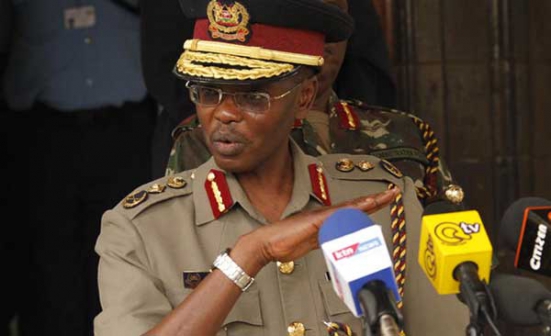
Fredrick Leliman, Stephen Chebulet and Silvia Wanjiku are the three Administration Police officers arrested in connection with the killing of a lawyer, his client and a taxi operator, police have revealed.
However, Inspector General of Police Joseph Boinnet gave no other details about their service record, but dismissed claims that National Police Service was engaged in extra-judicial killings following the death of Willie Kimani, a human rights lawyer, his driver Joseph Muiruri and boda boda rider Josephat Mwenda who were last seen alive at the Athi River police camp.